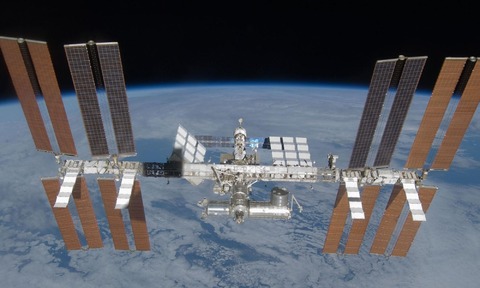Space science helps target medicine’s ‘final frontier’
29 May 2025

Space pioneers have joined an international effort to unravel the mechanisms behind what they describe as one of medicine’s last frontiers: the aging process.
International scientists from organisations including the European Space Agency (ESA), UCL and biotech firm LinkGevity focused on necrosis – cell death resulting from infection – to improve understanding of age-related conditions.
“Necrosis remains one of the last frontiers in medicine – a common thread across aging, disease, space biology, and scientific progress itself,” said LinkGevity CEO and study lead author Dr Carina Kern.
She described the process as a central mechanism through which systemic degeneration not only rose but also spread.
“That makes it a critical point of convergence across many diseases. If we can target necrosis, we could unlock entirely new ways to treat conditions ranging from kidney failure to cardiac disease, neurodegeneration, and even aging itself,” stated Kern.
Writing in in Nature Oncogene, the researchers outlined their work at Cambridge’s Babraham Research Campus, part of the NASA Space-Health programme.
While programmed forms of cell death enable tissue to replenish, necrosis is uncontrolled and capable of leading to decline.
Calcium is central to this process, they explain: normally, there are 10,000 to 100,000 times more calcium ions outside a cell than within it. When this balance is not maintained, calcium floods the cell which can rupture and leak toxic molecules into tissue.
UCL Centre for Kidney & Bladder Health’s Dr Keith Siew, a co-author of the study, highlighted the role this can play in chronic age-related conditions, notably kidney disease, heart disease and Alzheimer’s.
“With kidney disease, there’s no one underlying reason that the kidneys fail. It could be a lack of oxygen, inflammation, oxidative stress, a build-up of toxins, and so on. All of these stressors eventually lead to necrosis, which initiates a positive feedback loop that spirals out of control, leading to kidney failure,” he outlined.
“We can’t stop all of these stressors, but if you could intervene at the point of necrosis, you’d effectively achieve the same result.”
The possibility of interrupting necrosis has implications too for space travel astronauts have experienced issues including kidney decline and faster aging.
Professor Damian Bailey of the University of South Wales and also author of the paper, chairs the ESA life sciences working group, said: “Targeting necrosis offers potential to not only transform longevity on Earth but also push the frontiers of space exploration. In space, the same factors that cause aging on Earth are made worse by cosmic radiation and microgravity – speeding up degeneration dramatically.”
The study which also involved contributions from UCL’s division of medicine, the Harvard Medical School-affiliated Brigham and Women’s Hospital, Mayo Clinic, and MRC Laboratory of Molecular Biology can be viewed here.
Pic: the International Space Station (WikiImages/Pixabay)

